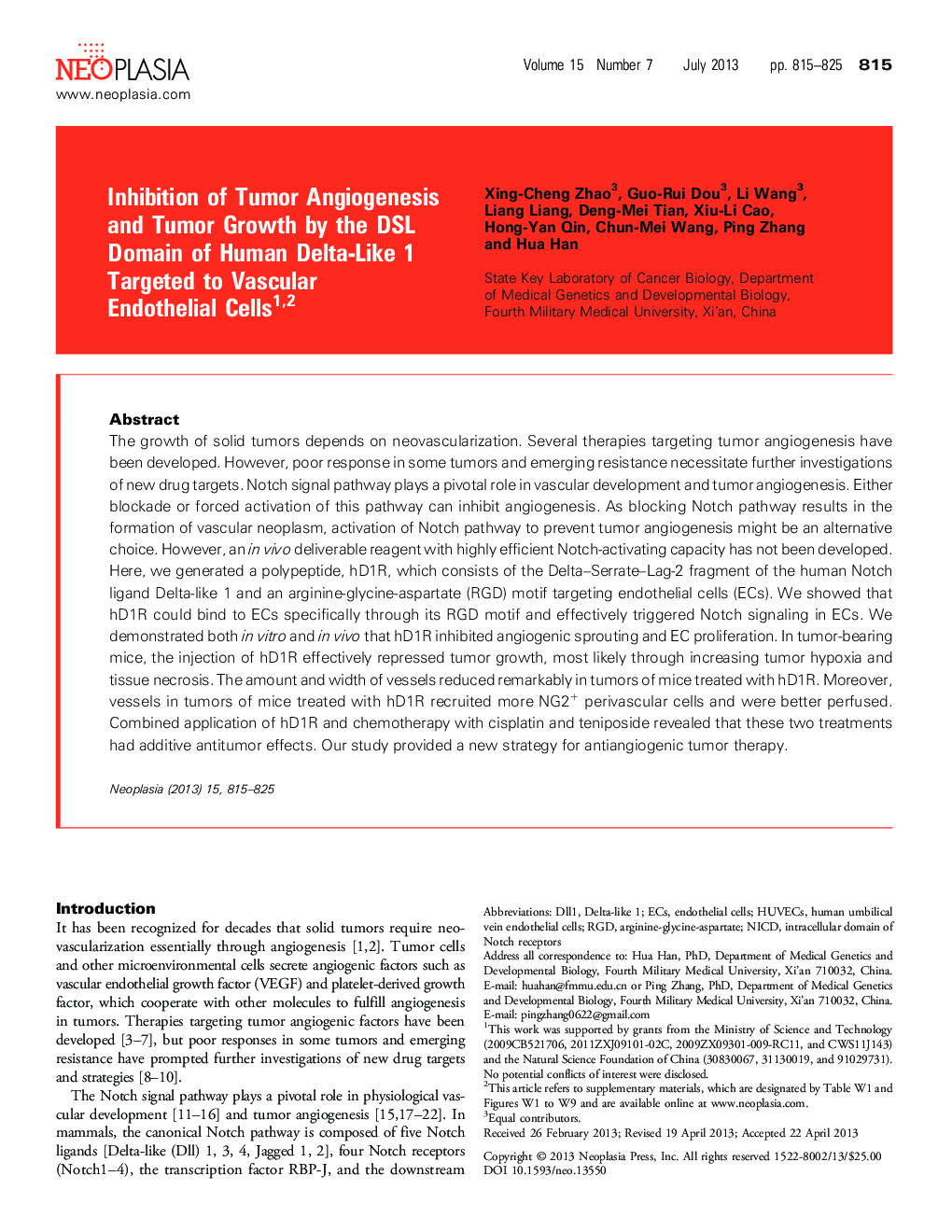| Article ID | Journal | Published Year | Pages | File Type |
|---|---|---|---|---|
| 2151486 | Neoplasia | 2013 | 15 Pages |
Abstract
The growth of solid tumors depends on neovascularization. Several therapies targeting tumor angiogenesis have been developed. However, poor response in some tumors and emerging resistance necessitate further investigations of newdrug targets. Notch signal pathway plays a pivotal role in vascular development and tumor angiogenesis. Either blockade or forced activation of this pathway can inhibit angiogenesis. As blocking Notch pathway results in the formation of vascular neoplasm, activation of Notch pathway to prevent tumor angiogenesis might be an alternative choice. However, an in vivo deliverable reagent with highly efficient Notch-activating capacity has not been developed. Here, we generated a polypeptide, hD1R, which consists of the Delta-Serrate-Lag-2 fragment of the human Notch ligand Delta-like 1 and an arginine-glycine-aspartate (RGD) motif targeting endothelial cells (ECs). We showed that hD1R could bind to ECs specifically through its RGD motif and effectively triggered Notch signaling in ECs. We demonstrated both in vitro and in vivo that hD1R inhibited angiogenic sprouting and EC proliferation. In tumor-bearing mice, the injection of hD1R effectively repressed tumor growth, most likely through increasing tumor hypoxia and tissue necrosis. The amount and width of vessels reduced remarkably in tumors of mice treated with hD1R. Moreover, vessels in tumors of mice treated with hD1R recruited more NG2+ perivascular cells and were better perfused. Combined application of hD1R and chemotherapy with cisplatin and teniposide revealed that these two treatments had additive antitumor effects. Our study provided a new strategy for antiangiogenic tumor therapy.
Keywords
Related Topics
Life Sciences
Biochemistry, Genetics and Molecular Biology
Cancer Research
Authors
Xing-Cheng Zhao, Guo-Rui Dou, Li Wang, Liang Liang, Deng-Mei Tian, Xiu-Li Cao, Hong-Yan Qin, Chun-Mei Wang, Ping Zhang, Hua Han,
